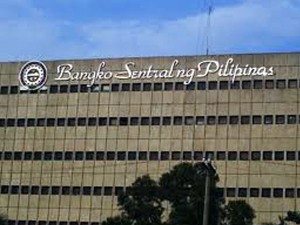Bangko Sentral ng Pilipinas Governor Amando Tetangco Jr. has called on private firms to engage in more job-generating initiatives, saying they should do their share in accelerating growth of the economy as the government provides the appropriate business environment.
Tetangco said the Bangko Sentral ng Pilipinas has so far done its job of helping maintain a benign inflation regime and relatively steady exchange rate while the national government has started reducing its budget deficit to stabilize the fiscal sector.
The central bank chief said that with a conducive environment for doing business, domestic enterprises should invest some more so that the goal of accelerating growth of the economy, which sharply slowed down last year, could be achieved.
“The monetary policy engine has been running; the fiscal policy engine has also been started. Now, the private sector also has to do its part,” Tetangco said in a speech before a businessmen’s forum.
“Appropriate policies and reform initiatives by the government do not by themselves translate into the desired growth in output and incomes. The success of the policymakers’ effort to sustain economic growth depends on the support and cooperation of the private sector,” Tetangco added.
Tetangco said uncertainties in the global economy remained and so the external environment might continue to put dampening pressures on growth of the Philippines. He said that to counter the ill-effects of the developments offshore, led by the debt crisis in the euro zone, spending within the domestic economy should be more robust.
In 2011, the Philippines was expected to have missed the official economic growth target of 4.5 to 5.5 percent. Gross domestic product (GDP) grew only 3.6 percent in the first three quarters.
The growth performance in 2011 was a stark deterioration from that of 2010 when the economy expanded by more than 7 percent to register the fastest pace in three decades.
One factor blamed for the slowdown was the anemic demand for Philippine exports from the United States and Europe, which had to deal with serious economic problems.
For 2012, the government aims to accelerate growth to between 5 and 6 percent.
Tetangco said this growth target was attainable, especially if the private sector would invest more.
Economists said the Philippines actually needed to grow at least 7 percent annually over the medium term to have an impact on poverty reduction.
The Aquino administration was earlier aiming for a growth of at least 7 percent, but the adverse impact of the global crisis on the domestic economy forced economic officials to lower the target for 2011 and 2012.
